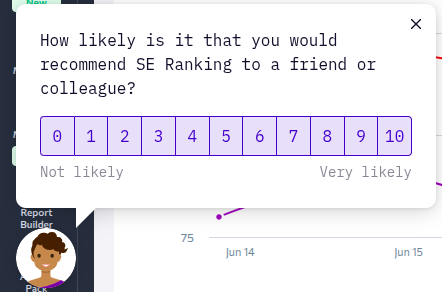TL;DR:
AI writing tools can be a real asset for your practice’s content strategy when used wisely. But copying and pasting what AI gives you and calling it done? That’s when it becomes a problem. Your content still needs to sound like you, speak to your ideal clients, and reflect the depth of your work. In Part 1 of this two-part series, we explore why untouched AI content can harm your practices and how to use AI as a starting point rather than the final product. We also dive into the writing fundamentals that make your content resonate, including smart prompting and intentional keyword use. If you’ve been wondering what search engine optimization for therapists actually looks like in the age of AI, this is a great place to start.
 The “Sea of Sameness” Problem
The “Sea of Sameness” Problem
Have you noticed it yet? If you’ve spent any time scrolling through wellness websites or therapy blogs lately, something feels… off. The content looks fine on the surface. It’s organized, covers the right topics, and technically answers the question. But it all sounds the same. There’s no personality and no warmth. It almost gives no sense that a real human with real experience sat down and wrote it. That’s because, in a lot of cases, they didn’t. AI did. And look, there’s no judgment here! AI tools like ChatGPT are fast, free (to an extent), and incredibly accessible. Of course, practitioners are using them! You’re busy running a practice, seeing clients, handling admin, and somehow trying to keep your website updated on top of all that. When a tool promises to write a blog post in thirty seconds, it makes sense that you’d want to try it.
Here’s the thing, though: AI isn’t the problem; it’s how people are using it that is. The practitioners thriving online in 2026 aren’t avoiding AI altogether. They’re also not copying and pasting the first draft ChatGPT gives them and hitting publish. The ones standing out are using AI as a tool while staying firmly in the driver’s seat. They edit with intention, write with their ideal client in mind, and make sure their content still sounds like them. That’s what this two-part series is about. In Part 1, we’re covering the foundation: what’s going wrong with AI content, how to use it wisely, and the writing basics that make your content connect. In Part 2, we’ll get into voice, storytelling, content structure, and what high-performing content actually looks like this year. Let’s dig in.
Why Copy-Paste AI Content Is Hurting Your Practice
Let’s look at this from your ideal client’s perspective. They’re overwhelmed, and maybe they’re dealing with anxiety that keeps them up at night. Or maybe they’re in chronic pain and traditional medicine hasn’t given them answers. They pull out their phone, type something into Google, and click on a result that looks promising. They land on your page, and what they find is… fine. I mean, it’s technically accurate, and it lists some general tips. But it doesn’t feel like anyone is talking to them. There’s no empathy, or no real understanding of what they’re going through. It reads as if it could belong on any practice’s website. So they hit the back button and keep scrolling. You just lost a potential client, and you might not even know it.
This is happening more often than you’d think. As AI tools have become more accessible, practice websites are flooded with content that’s never been edited by a human. When everyone uses the same tool with similar prompts, the output blurs together. Your website ends up sounding like every other website in your space. It loses that human element. Here’s what’s important to understand: Google doesn’t penalize AI-generated content just because AI made it. But Google does prioritize content that demonstrates E-E-A-T: Experience, Expertise, Authoritativeness, and Trustworthiness. So, how does Google view unedited AI content? It seems that it lacks the personal experience and authentic expertise that both Google and your potential clients are looking for.
The bottom line? If your content could belong on anyone’s website, it’s not doing its job on yours.
 AI Is a Starting Point, Not the Finish Line
AI Is a Starting Point, Not the Finish Line
So, if you shouldn’t just copy and paste, where does AI actually fit? Think of it like a brainstorming partner or research assistant. It’s great for getting past a blank page, organizing your thoughts, or generating ideas when you’re stuck. But the final product needs your fingerprints on it. Let’s say you’re an acupuncturist who wants to write a blog post about how acupuncture helps with sleep issues. You ask ChatGPT for an outline or a rough draft. This is a perfectly fine starting point! Honestly, I start there too, sometimes. But that draft doesn’t know your approach. It doesn’t know you always begin by asking patients about their stress levels and nighttime routines, and it doesn’t carry your voice or clinical perspective.
That’s where the real work begins. Take that rough draft and make it yours! Add your perspective and swap out that generic phrasing for language your clients actually use. Include a real example from your practice (anonymized, of course; let’s keep things HIPAA compliant). Then cut the filler and read it out loud. Take a moment to ask yourself (or if you’re like me, ask someone else): does this sound like something I’d actually say to a client sitting in my office?
If the answer is no, then keep editing! The goal is to let AI handle the scaffolding so you can spend your energy on what actually matters: the insight, empathy, and expertise that only you can bring.
How to Actually Prompt AI Well (Without a Tech Background)
Let’s be real. Most therapists, healers, and wellness practitioners didn’t go to school for prompt engineering, and you don’t need to. But the quality of what AI gives you depends almost entirely on what you ask it. Vague prompts produce vague content, and vague content doesn’t connect with anyone. The good news? You don’t need to be technical. You just need to be specific. Instead of asking AI to “write a blog post about anxiety,” try: “I’m a therapist in private practice who specializes in working with high-achieving women experiencing burnout and anxiety. Write a blog intro in a warm, conversational tone that speaks directly to someone who feels like they’re holding everything together on the outside but falling apart on the inside.”
See the difference? You’re giving AI context about who you are, who your client is, and how you want it to sound. That changes everything! Here are a few other tips:
- Tell AI to draft, not finalize: Frame it as “give me a starting point” rather than “write my finished blog post.”
- Ask it to match a specific tone: And if you have notes from sessions, such as themes that keep coming up, questions clients always ask, feed those in. The more specific your input, the less editing you’ll need.
But here’s the part that doesn’t change, no matter how good your prompt is: you’ll still need to edit. Every single time. AI can get you 60% of the way there, but the other 40%? That’s the part that makes it real and human and yours; that’s on you. Plus, did I mention that AI occasionally leaves out words or spells things incorrectly? Well… It does.
Write for Your Ideal Client, Not for a Robot
This is where a lot of practitioners get stuck. You know you need SEO, and you know keywords matter. Suddenly, writing feels less like talking to a real person and more like trying to impress an algorithm. Here’s how to reframe that: good SEO and good writing are not at odds. The best-performing content in 2026 does both at the same time. However, it starts with one simple shift: write for your ideal client first. Always. SEO is flexible and can fit into that writing. Now, think about who that person is. What are they feeling when they type something into Google at 11 PM? Are they exhausted? Scared? Frustrated that nothing has worked?
When you write with that person in mind, your content naturally becomes more specific, more helpful, and resonates with them more. That’s exactly what search engines reward! Google’s algorithms are designed to surface content that genuinely helps people. A quick note on balance, though. Writing for your ideal client doesn’t mean narrowing your content so much that no one else can relate. If you specialize in working with first responders dealing with PTSD, write to that person. However, keep the language accessible enough that anyone dealing with trauma-related symptoms would still find it valuable. Specificity builds connection, but exclusivity limits it. There’s a sweet spot, and that’s where you want to land.
Keywords Still Matter, But Use Them Like Seasoning
Now, let’s talk keywords, because this is where AI content tends to go off the rails. Either it stuffs keywords into every other sentence until the writing feels robotic, or it ignores them entirely, and the content doesn’t rank for anything useful. Keywords matter because they’re how search engines understand your content and match it to the right searches. When someone types “therapy for anxiety in Jonesboro” or “holistic treatment for chronic pain near me,” Google looks for pages that naturally address those topics. If your content doesn’t include relevant terms, you’re invisible to the people searching for what you offer. But there’s a big difference between natural keyword use and keyword stuffing.
Think of it like seasoning in a recipe. You want enough to bring out the flavor, not so much that it’s all you can taste. A phrase like “acupuncture for migraine relief” should appear where it makes sense. This can be in a header, in the opening paragraph, maybe once or twice more. If you’re cramming it into every section, your content reads like it was written for a machine. It feels repetitive, abrupt, and not an easy read. Here’s a practical test: read your content out loud. If a phrase sounds awkward or forced, it’s going to feel that way to your reader, too. Search engines have gotten incredibly good at recognizing natural language. So, write naturally, use your keywords with intention, and trust that when your content is clear and relevant, the search engines will figure it out.
 Keep It Readable, Write at a Human Level
Keep It Readable, Write at a Human Level
Here’s something that doesn’t get talked about enough: reading level matters. A lot, actually. And it’s one of the biggest areas where unedited AI content falls short. Your ideal clients aren’t hoping to find a dissertation. They’re stressed, overwhelmed, or in pain. They want clear answers and to feel understood. If they land on your page and the sentences are long, the language is dense, and the paragraphs stretch on forever, they’re not going to push through. They’re going to leave. Writing at a 9th-grade reading level isn’t about dumbing your content down. It’s about being accessible. The smartest communicators in any field are the ones who can explain something complex in a way anyone can understand. That builds trust.
Here’s where this connects to AI. One of the quickest telltale signs of unedited AI content is that it overcomplicates things. Long, winding sentences, unnecessary filler phrases, or jargon that sounds impressive but doesn’t say anything. When you edit AI-generated content, readability should be one of the first things you tackle. Break up those long sentences and replace those fancy words with simple ones. Also, give your paragraphs room to breathe. If you only do one thing after reading this post, let it be this: go back to your most recent piece of content. I want you to read it out loud and ask yourself whether your ideal client would actually make it to the end. If not, it’s time to simplify!
What’s Coming in Part 2
We’ve covered the foundation: why untouched AI content is a problem, how to use AI wisely, and the writing basics that help your content actually connect. But there’s more to the picture. In Part 2, we’ll explore why your voice is your greatest competitive advantage and how storytelling helps you stand out from AI-generated content. You’ll learn how to structure your pages to appeal to both humans and search engines. Plus, we’ll break down what high-performing content actually looks like in 2026. And we’ll cover the one thing most practitioners skip entirely: how to know if your content is even working in the first place. Stay tuned.
Don’t Want to Wait? Explore Our SEO Consulting Services.
If Part 1 already has you rethinking your content strategy, imagine what a tailored SEO plan could do for your practice. At Simplified SEO Consulting, our SEO consultants work with therapists, wellness practitioners, and alternative healers to build online presences that reflect the quality of care you provide. From wellness SEO to content creation to full-service SEO consulting, we handle the strategy so you can focus on what you do best. Our SEO consulting services are designed with practitioners like you in mind, rooted in your clinical world, not generic marketing playbooks.
- Schedule Your Consultation
- Meet Our Team of SEO Consultants
- Follow us on Social Media!
Your voice matters. Let’s make sure it’s heard.
Additional Ways We Support Your SEO Strategy
At Simplified SEO Consulting, we know every practice is different. That’s why we offer a range of services to meet you wherever you are in your SEO journey.
Our Strategy Sessions give you a solid foundation, whether you’re launching a new site or refreshing an existing one. Need ongoing, personalized support? Our SEO Consulting Package provides in-depth guidance built around your goals and specialties.
Looking to reach more clients in your area? Our Local SEO package helps your practice show up where it matters most. For technical performance, our Technical SEO package optimizes site speed, mobile experience, and the behind-the-scenes details that influence rankings.
Want to maintain the visibility you’ve built? Our SEO Maintenance Packages keep your presence strong as algorithms evolve. Prefer a hands-off approach? Our Done for You Program manages every aspect of your SEO strategy. And if content is what you need most, our Stand-Alone Copywriting Service delivers SEO-optimized pages and posts that sound like you.
No matter where you are in your digital marketing journey, we’re here to help you build something that lasts.
 About the Author
About the Author
Lynsey is the SEO Content Specialist at Simplified SEO Consulting. She helps therapists, wellness practitioners, and helping professionals create content that sounds like them and actually performs in search. Lynsey has expertise in search engine optimization for therapists and a sharp eye on AI developments and evolving search trends. She understands what it takes to stand out online, especially in a landscape flooded with generic, machine-generated content. At Simplified SEO Consulting, she combines technical SEO knowledge with a real passion for helping practitioners show up authentically online. Allowing you to focus on what matters most: the clients who need your care.

 And that has big implications for SEO.
And that has big implications for SEO. So what does all this mean for your SEO strategy in practical terms?
So what does all this mean for your SEO strategy in practical terms? Finally, treat this as an evolving landscape:
Finally, treat this as an evolving landscape:




 Why SEO Matters for Functional Medicine Practitioners
Why SEO Matters for Functional Medicine Practitioners




 What ChatGPT Means for Healthcare Searches
What ChatGPT Means for Healthcare Searches Google’s AI Advancements: Simplifying Search
Google’s AI Advancements: Simplifying Search Practical SEO Strategies for Functional Medicine Doctors in the AI Era
Practical SEO Strategies for Functional Medicine Doctors in the AI Era















